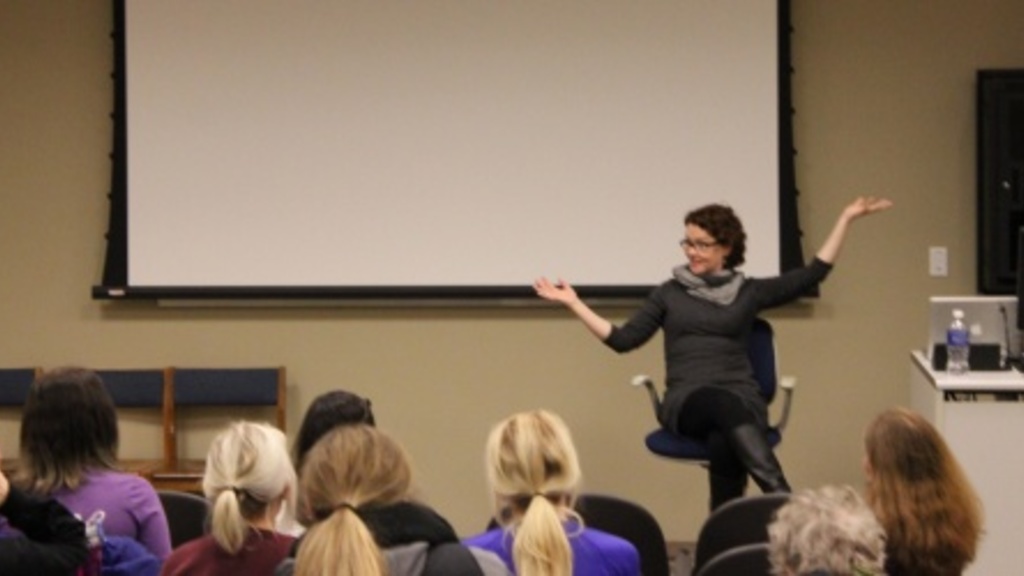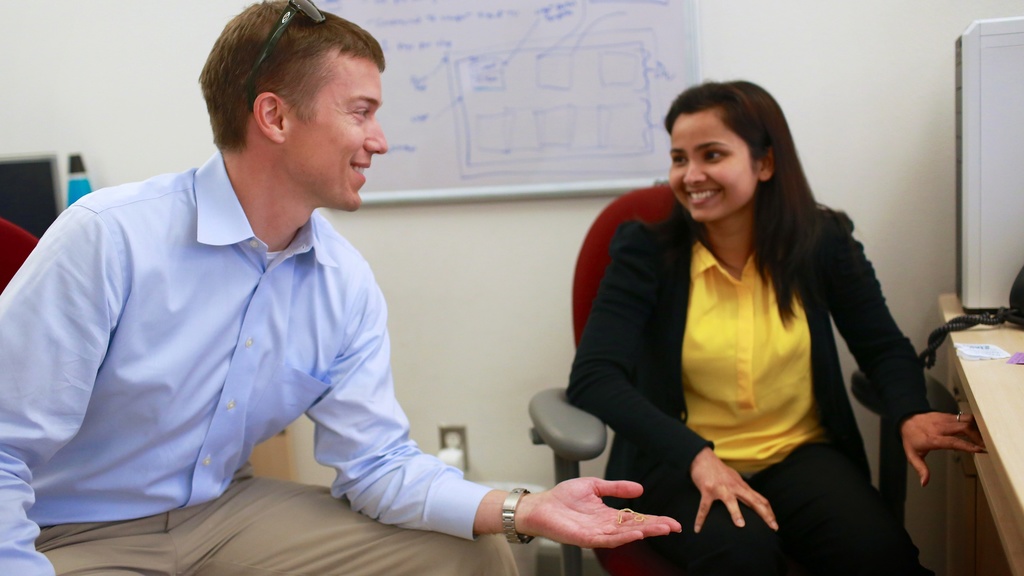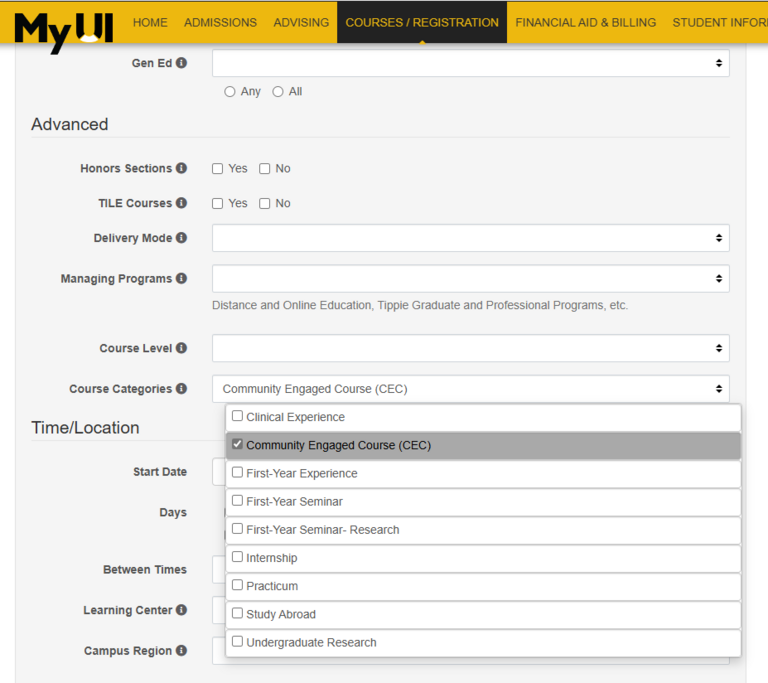
Student Information
Learn more about CECs and how they can enhance your learning and provide you with opportunities to make an impact on your community.

Faculty Information
Find information about teaching CECs, the application to designate your course as a CEC, and more resources for engaged teaching.
Community-Engaged Course Offerings
Where to Find Community-Engaged Courses
We are pleased to offer nearly 200 Community-Engaged Courses (CEC) each academic year. These courses span departments across campus and are designated as CEC in MyUI, making them easy to identify during registration. CEC courses intentionally integrate community partnerships into course activities, providing students with meaningful, hands-on learning experiences that address real-world challenges.
To view Community-Engaged Courses offered each semester, visit MyUI Courses, scroll down to the "Advanced" section, locate "Course Categories", and check the box for Community-Engaged Course (CEC).
Learn more about the benefits of Community-Engaged Courses below.

High-Impact Practices (HIPs)
High-Impact Practices (HIPs) are learning experiences that promote engagement, critical thinking, and personal growth. They go beyond traditional coursework by allowing students to apply knowledge in real-world settings and reflect meaningfully on those experiences. Students who participate in HIPs tend to perform better academically and retain information more effectively (Kuh, 2008).
Community-engaged learning is one of the most powerful High-Impact Practices, combining classroom learning with community-based work and thoughtful reflection. Students collaborate with community partners to address real-world challenges, deepening academic understanding, and gaining civic awareness and practical experience.